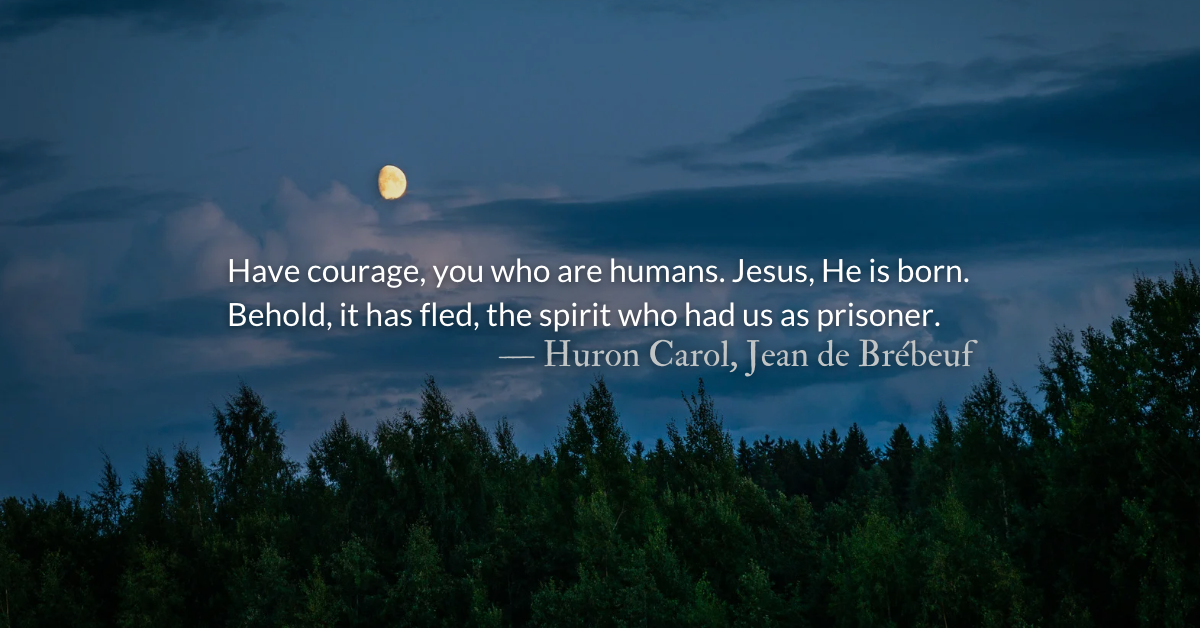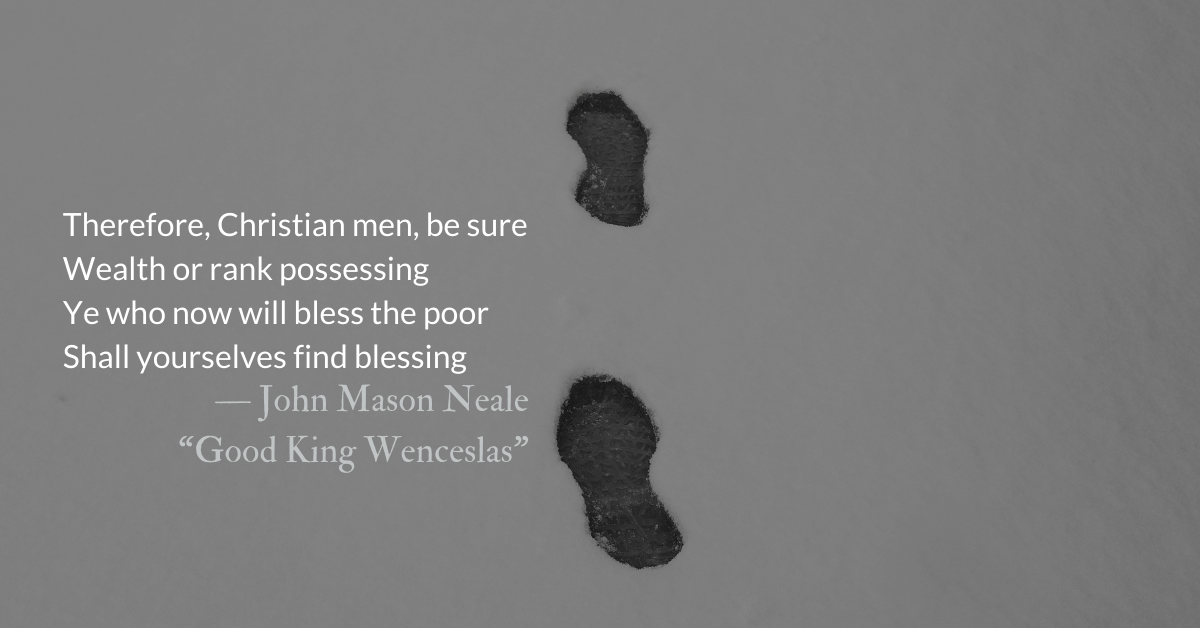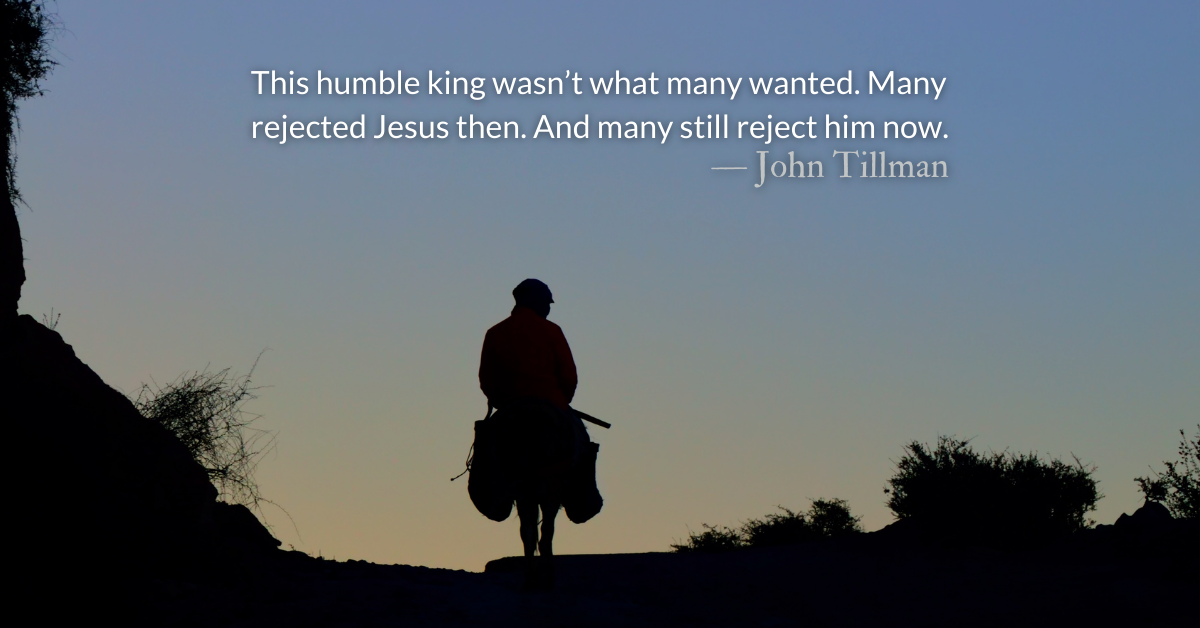Scripture Focus: 1 John 5.6
6 This is the one who came by water and blood—Jesus Christ.
John 3.5-6
5 Jesus answered, “Very truly I tell you, no one can enter the kingdom of God unless they are born of water and the Spirit. 6 Flesh gives birth to flesh, but the Spirit gives birth to spirit.
Reflection: By Water and Blood — Love of Advent
By John Tillman
The coming of Jesus was long awaited. Afterward, it was long debated. Conflicts arose about the nature of Christ’s coming, especially among those who had prior beliefs about the world that they were unwilling to give up.
Gnostics believed flesh and matter were evil and only spirit was pure. God, a spirit, becoming flesh was unfathomable. They tried to find ways to explain the coming of Jesus without letting go of their preconceived beliefs. Perhaps Jesus was just an illusion? Perhaps a spirit that only appeared to have a body?
John pokes holes in these arguments just like Thomas poked his fingers into the holes in Jesus’ side and hands. Jesus came by water, a symbol for spirit, and by blood, a symbol of life and of death.
If Jesus only “appeared” on Earth, instead of living here, then Advent’s love is an illusion and a half-truth. But John assures us that this is not true. The Incarnation, John testifies, was not a Zoom call, or a holodeck adventure, or an experience in augmented reality. John touched, saw, heard, and believed in Jesus. The Jesus John loved (John 13.23), was not some phantasm. He was a physical, sweaty, sometimes napping, mud-making, foot-washing, blood-sweating Jesus. (Mark 4.38; John 9.11; 13.12; Luke 22.44)
When placed in the hay as a baby, his tender skin itched. When he got a splinter in his father’s carpentry shop, his small fingers bled. When angry enough to swing a whip in the Temple, blood rushed to his face. When he stood at a friend’s grave, his guts roiled with emotion and tears rolled down his cheeks. When he knelt in the garden, his mind clouded with stress, anxiety, and fear as blood burst from his capillaries through his skin. When the soldiers punched him, their knuckles raised fleshy bruises. When they pulled out his beard, the blood and hair stuck to their hands and clothes.
Jesus was real. This means his love is real too. The love Jesus has for us is not some long-distance affection. He came close. His love for us is visceral and he lived that love out with passion in our physical world. He will come close to us if we draw close to him. You probably aren’t a Gnostic (although Gnostic-ish concepts are popular in our culture). However, you might have to let go of some cultural beliefs as you draw closer to Jesus.
Divine Hours Prayer: The Refrain for the Morning Lessons
Blessed are they which do hunger and thirst after righteousness: for they shall be filled. — Matthew 5.6
Today’s Readings
Esther 8 (Listen 3:41)
1 John 5 (Listen 3:00)
Read more about Supporting Our Work
Donor-supported content > Ad-supported content. Especially when it’s biblical content. Donate to support biblical content with no ads and no agendas.
Read more about How Are You Waiting?
Advent is a time in which we leave the front door unlocked for we know the time of Christ’s coming.











